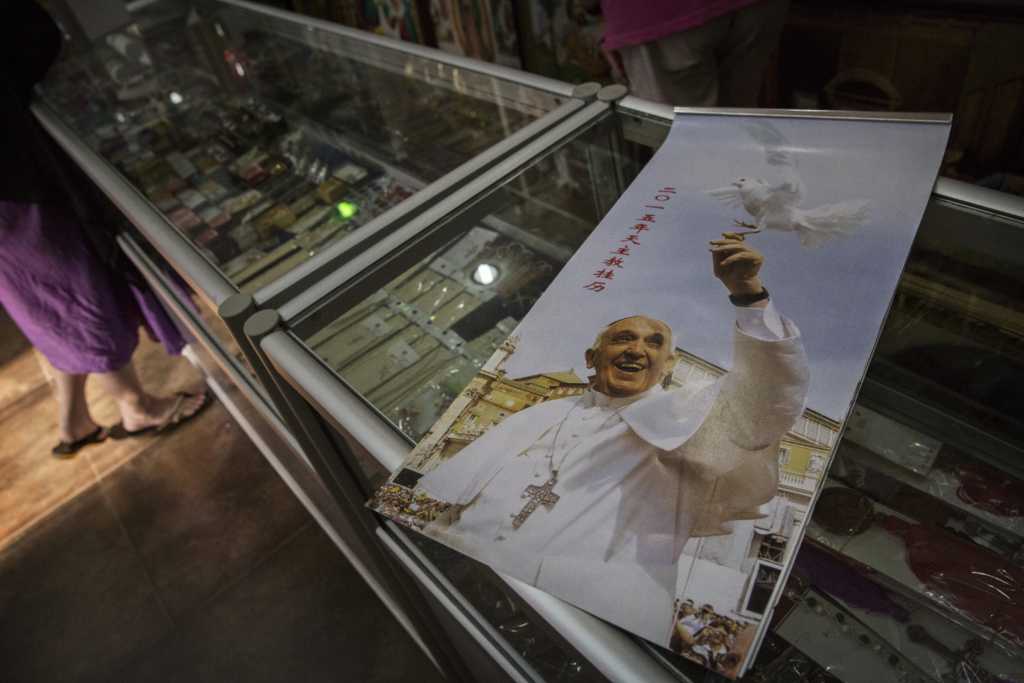The Chinese government has allowed the Vatican to officially ordain the country’s first every Catholic bishop, in a move which many believe will ease tensions between the Beijing and Pope Francis.
The Chinese government has been embroiled in a protracted battle with the Pope, who has repeatedly urged Beijing to recognize the millions-strong underground Catholic church — a group that pledges allegiance to the Holy See.
However, in a bid to outlaw any religious activity that is void of state-approval, the communist government set up an organization called the “Chinese Patriotic Catholic Association,” and ordered its members not to recognize the authority of the Pope.
Now, after an agreement was signed last September granting the Vatican more say in the appointment of bishops who are part of the state-mandated Church, the inaugural ordination has finally taken place.
Antonio Yao Shun is “the first to take place in the framework of the Provisional Agreement between the Holy See and the People’s Republic of China,” the Vatican said in a statement, according to the BBC.
The director of the Vatican Press Office, Matteo Bruni, added that the cleric had “been consecrated Bishop of Jining/Wulanchabu, Inner Mongolia (China),” and had “received the Papal Mandate.”
To many pro-government Catholics, Bishop Yao is somewhat of a safe bet, having been loyal to the Chinese state for decades. “The Communist Party feels comfortable with him,” commented Francesco Sisci, a Beijing-based researcher on Chinese Catholicism, according to the New York Times. “They don’t want someone doing agitprop against them.”
The official consecration ceremony was held at Our Lady of Rosary Cathedral in the Chinese city of Jining and was attended some 1,000 patrons and 120 priests.
According to The Union of Catholic Asian News, during the course of the proceedings, an approval letter was read aloud which declaring that Bishop Yao had been elected “according to the tradition of bishop election by the Holy Church and the regulation of the BCCCC.”
And with that, the deal between the Vatican and the Chinese government was complete.
Interestingly, in a move designed to momentarily appease the large underground Catholic population, Chinese authorities allowed a prominent member of the illegal church, Bishop Du Jiang, to attend the ceremony.
Not everyone is celebrating the historic moment, however. Former Cardinal Joseph Zen of Hong Kong, who was once the highest-ranked Catholic official in the region, accused the Vatican of “selling out” to Beijing. The Vatican shot back, warning that criticism of the agreement was leading to unnecessary “confusion and controversy.”
“Do I think that the Vatican is selling out the Catholic Church in China?” Zen wrote on Facebook. “Yes definitely, if they go in the direction which is obvious from all they are doing in recent years and months.”
But the Vatican insisted that it was in “constant contact with his collaborators… on Chinese issues,” whatever that means.
The Chinese government has spent years attempting to quash religious freedom, which it sees as a threat to state authority. Demanding that believers pledge allegiance to their country over all else, authorities have waged a nationwide propaganda campaign in order to convince Christians to see President Xi Jinping as their savior instead of Jesus Christ.
At the start of this year, government officials ordered the removal of a church display which contained the First Commandment because they believed it directly contradicted the policies of President Xi Jinping.
The government-approved Three-Self Church was forced to remove the First Commandment after a visit from the central “patrol inspection team” of Luoyang city and Luoning county United Front Work Department.
In another incident, some 624 Christian-themed posters were taken down and replaced with 453 images of President Xi. The general message and sentiment being put across by party officials involved in the campaign was simple, “Jesus won’t save you, but President Xi will.”



